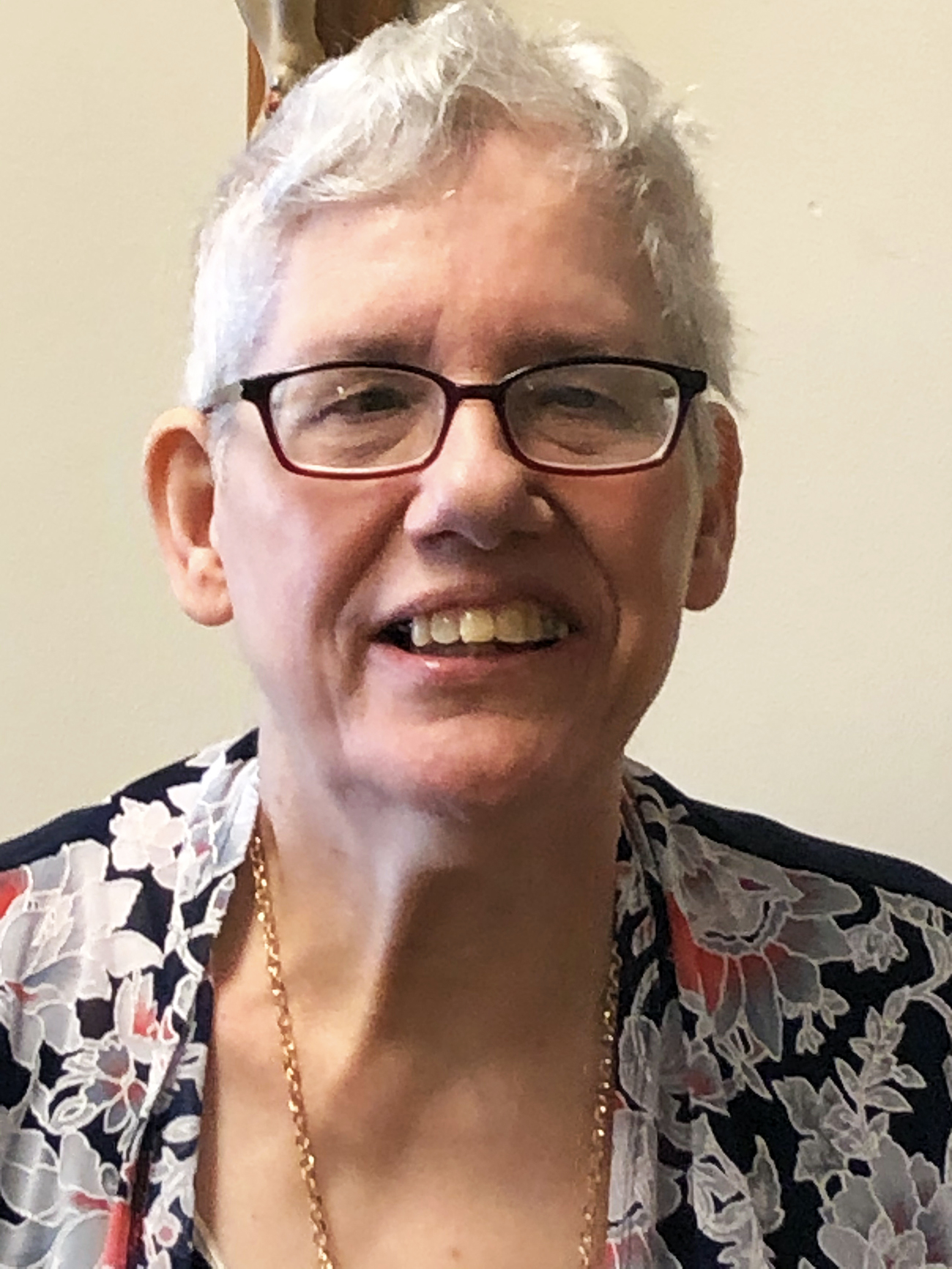
Catherine McCrorey, a longtime resident of the archdiocesan Communities of Don Guanella and Divine Providence (DGDP), has recently taken a seat on that institution’s board as part of a movement to include adults with intellectual and developmental disabilities in decisions regarding their care. (Photo courtesy of Holly Piccirelli)
Catherine McCrorey would be the first to tell you that she’s on a tight schedule.
Work, pastoral commitments and social engagements have kept her on her toes for the better part of her 68 years.
And about a year ago, she added yet another item to her calendar — board meetings at the Communities of Don Guanella and Divine Providence (DGDP), an archdiocesan intermediate care facility (ICF) for adults with intellectual disabilities.
Operated by archdiocesan Catholic Social Services (CSS), the DGDP communities provide a continuum of support through community and campus-based living arrangements, life sharing through family living, in-home assistance, respite care and day programs. DGDP is also a beneficiary of the annual Catholic Charities Appeal.
McCrorey has some very definite opinions to share in the organization’s board meetings, and for good reason: she’s called the DGDP communities home since 1992.
“I like the meetings,” she said. “They’re interesting to me, and I like to meet new people.”
McCrorey relishes the parliamentary procedure of the meetings, and she’s a stickler for accuracy.
“Nay means no,” she said firmly.
She’s already made a difference in her role. At one meeting, “she advocated for other residents to have a say in how (DGDP’s) residences are run,” said Francis Swiacki, executive director of CSS’s developmental programs division.
McCrorey’s voice “contributed to us pursuing ways to implement resident governance through individuals and group meetings,” Swiacki said, adding that “she advocates for her staff as well.”
While other attendees may find themselves distracted at points in the discussion, McCrorey remains focused throughout the agenda, said Holly Piccirelli, a DGDP program specialist who has known her for 20 years.
“She’s also really good with grasping issues,” said Piccirelli. “You might think that maybe she isn’t fully listening, but then someone says something funny, and she’ll laugh.”
[hotblock]
Since the early 1990’s, disability care organizations have increasingly included clients in their decision-making processes. Such efforts have helped to affirm the dignity of persons with disabilities while fostering their skills and talents.
“Their voices are necessary,” said Servant of Charity Father Dennis Weber, director of ministry and mission at the DGDP communities.
At DGDP, Fred Lokuta — a CSS board member and former Pennsylvania deputy secretary for developmental programs — was the “architect” behind a two-year process of making clients part of governance, said Swiacki.
“It was his idea, and he supported us in a hands-on way of getting (clients) on the committee,” he said.
That seat at the table gives clients the chance to “offer perspectives that we might not be aware of in a way that is, in my experience, something that is expressed from the heart in a forthright manner and with no pretense,” said Father Weber. “For me, it is reflective of the beauty in which God has created them.”
The practice also makes sound business sense, he added, since clients have both direct experience with disabilities and, quite often, extensive employment backgrounds — along with “a kind of ‘institutional history'” that can benefit disability organizations.
Over the past three decades at DGDP, McCrorey has volunteered at a day care center, assisted local companies through DGDP’s work activity program, and provided catering services at a Montgomery County financial firm.
She’s enjoyed that third and current position so much that she “won’t be back at the DGDP activity center anytime soon,” said Piccirelli.
With her ready smile and bustling energy, McCrorey continuously challenges herself to achieve new goals. In 2014, she decided to move out of the larger DGDP campus and into one of the program’s community living arrangements, through which she now shares a house with three other women.
McCrorey admits that “COVID-19 is making life hard” by limiting her normally nonstop agenda. While Piccirelli described her as “bored out of her mind” due to a pandemic-related furlough, McCrorey has offset the tedium by throwing herself into housework, bingo and listening to music.
Shopping for what Piccirelli calls “blingy, flashy jewelry” is another hobby, along with reading.
Even McCrorey’s favorite song – Diana Ross’s “Someday We’ll Be Together” — keeps the focus on a brighter future.
More than Motown, though, faith and family sustain McCrorey.
Her go-to prayer is the Hail Mary, and she often recites the rosary. During liturgies at the DGDP communities, she regularly assists on the altar; nowadays, she watches Mass on television since diabetes and age place her at greater risk of contracting COVID-19.
She draws strength as well from the love of family and friends.
“Seeing them makes me happy,” said McCrorey.
In turn, she’s been a source of hope and assurance to them throughout the pandemic.
“I caress them when they’re afraid,” she said. “And I tell them, ‘It’s OK. We’ll all get through it together.’”
PREVIOUS: Permanent deacon blends spreadsheets, sacraments to serve those in need
NEXT: Villa St. Joseph leader brings life of service to retired priests


Share this story